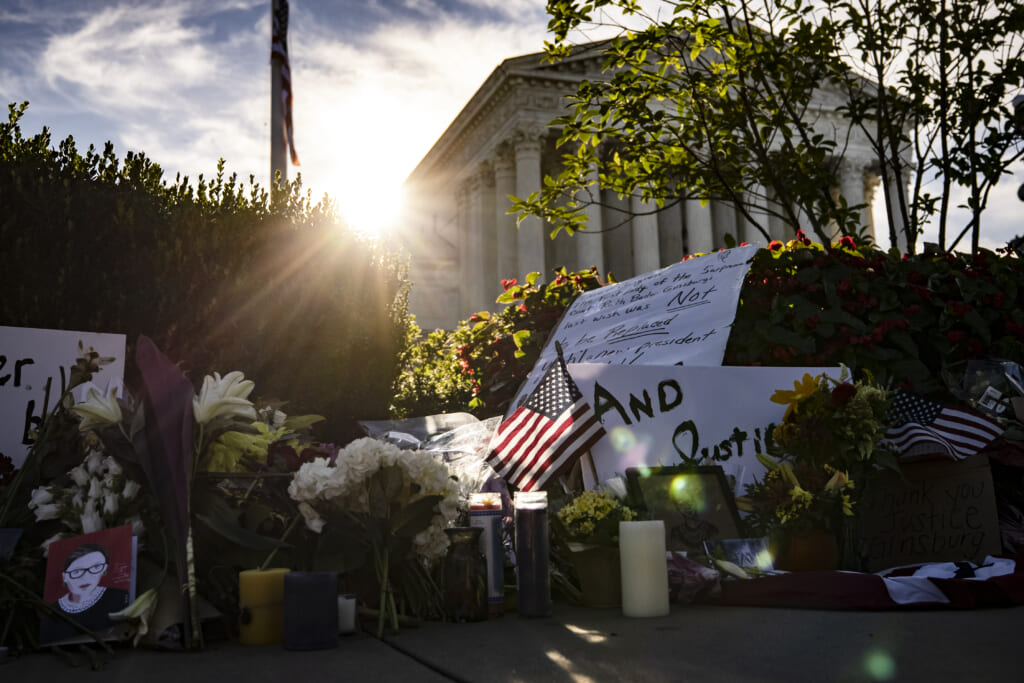Ruth Bader Ginsburg’s dying wish: ‘I will not be replaced until a new president is installed’
The late U.S. Supreme Court justice uttered her wish to her granddaughter days prior to her passing Friday
U.S. Supreme Court Justice Ruth Bader Ginsburg died of pancreatic cancer Friday.
Her on-again, off-again bouts with cancer had been well covered in the press and, recognizing the end may be near, she previously disclosed to family that she hoped her replacement would come after the next U.S. president was elected.
As NPR reports, mere days before her passing Ginsburg told her granddaughter, Clara Spera: “My most fervent wish is that I will not be replaced until a new president is installed.”

Ginsburg, the second woman to ever serve on the high court, recognized that the conservative vote on the bench out numbered the liberal vote five to four.
Since taking office in January 2017, President Donald Trump has filled two Supreme Court seats with conservative judges. That year he nominated Neil Gorsuch, and in July 2018 he nominated Brett Kavanaugh. Should Trump get to appoint another justice, whether he wins the White House or not, conservative justices would lead the Court six to three.
READ MORE: Supreme Court Justice Ruth Bader Ginsburg dies at 87
While Kavanaugh’s controversial appointment came after the retirement of Justice Anthony Kennedy, Gorsuch’s contentious nomination is reverberating in the 2020 election.
Following the death of Justice Antonin Scalia, a conservative stalwart, in February 2016, President Barack Obama soon after nominated Judge Merrick Garland. Senate Majority Leader Mitch McConnell, though, blocked Garland from being considered for the seat with the 2016 election months on the horizon.
This left the ninth seat vacant on the bench for more than 400 days.

Should Trump select a nominee to replace Ginsburg, only 50 Senate votes are required to confirm the next justice. In the event of a tie, Vice President Mike Pence will serve as the deciding vote.
Alaska Sen. Lisa Murkowski is among those who believe that a new justice should not be appointed until after the November election, particularly in light of how her party handled Garland’s situation.
“When Republicans held off Merrick Garland, it was because nine months prior to the election was too close, we needed to let people decide. And I agreed to do that,” said Murkowski, a Republican, according to The Hill. “If we now say that months prior to the election is OK when nine months was not, that is a double standard and I don’t believe we should do it. So I would not support it.”
READ MORE: Trump to Senate: Vote ‘without delay’ on his pick to replace Justice Ruth Bader Ginsburg
Senate Minority Leader Chuck Schumer tweeted that he agrees that the American citizens should have a say in the decision to select another Justice, repeating McConnell’s sentiment in 2016 verbatim.
“The American People should have a voice in the selection of their next Supreme Court Justice,” he wrote. “Therefore, this vacancy should not be filled until we have a new president.”
Have you subscribed to theGrio’s podcast “Dear Culture”? Download our newest episodes now!

